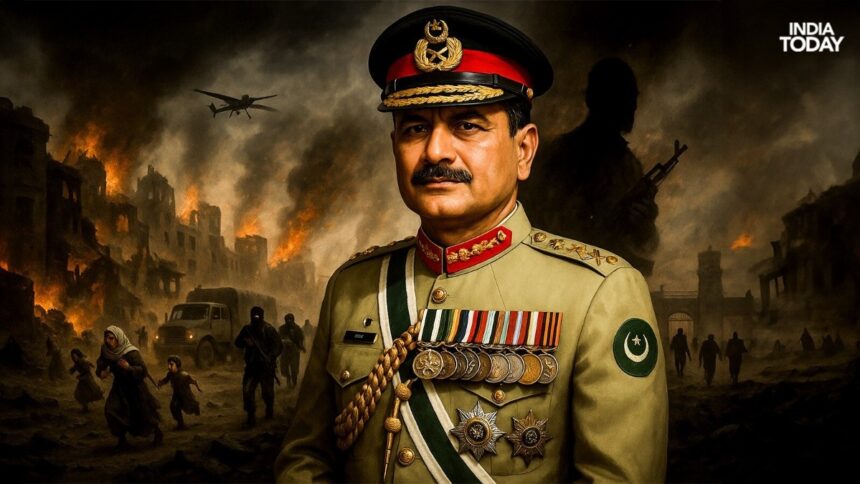The terror attack in Pahalgam once again highlighted Pakistan’s enduring role in fomenting violence in India. The assault, the deadliest on civilians in recent years, has sharply escalated tensions between New Delhi and Islamabad. It has also reignited a question that has puzzled many for decades: why does Pakistan continue to provoke India militarily, knowing it will almost certainly face defeat?
American political scientist C Christine Fair, in her book – ‘Fighting to the End: The Pakistan Army’s Way of War’ – offers a searing explanation. Fair writes: “Even though Pakistan has failed to make even modest progress toward attaining Kashmir, Pakistan’s revisionist goals toward India have actually increased rather than retracted in scope.”
Fair explains that Pakistan’s objectives are no longer just about Kashmir. “Pakistan’s conflict with India cannot be reduced simply to resolving the Kashmir dispute. Its problems with India are much more capacious than the territorial conflict over Kashmir.”
She writes that despite the crushing defeat in the 1971 war and the loss of East Pakistan (now Bangladesh), Pakistan continues to see itself as India’s peer competitor. “Pakistan continues to view itself as India’s peer competitor and demands that it be treated as such by the United States and others. In fact, former president and army chief Pervez Musharraf boldly declared that India must accept Pakistan as an equal as a precondition for peace.”
Fair points out that for the Pakistan Army, resisting India is more important than actual victory. “For the Pakistan Army, simply retaining the ability to challenge India is victory. However, to acquiesce is tantamount not only to defeating the Pakistan Army but also, fundamentally, to eroding the legitimacy of the Pakistani state.”
The South Asia expert notes that Pakistan has managed to redefine victory by continuing its resistance: “By seeing victory as the ability to continue fighting, Pakistan’s army is able to seize victory even from the jaws of what other observers would deem defeat.”
Pakistan’s military, Fair argues, sees its struggle with India in existential terms. “Because the army’s concerns and preoccupations are ideological as much as military in scope, the Pakistan Army views its struggle with India in existential terms.”
Even repeated losses on the battlefield, she adds, are not viewed as true defeat: “For Pakistan’s men on horseback, not winning, even repeatedly, is not the same thing as losing. But simply giving up and accepting the status quo and India’s supremacy, is, by definition, defeat.”
The Pakistan Army, according to Fair, is willing to take enormous risks, even at the cost of the country’s stability. “Pakistan’s army will insist on action at almost any cost, even that of presiding over a hollow state. After all, if the Pakistani state were to make such concessions to India, it would no longer be a state worth presiding over.”
In practical terms, this means Pakistan will continue to challenge India not just inside Kashmir, but across the region. “Pakistan Army, based on its accumulating body of history and experiences, will prefer to challenge the territorial status quo and India’s rise under virtually all circumstances. It will do so when possible in India, but when necessary it will do so by challenging India in the region — such as in Afghanistan.”
To sustain this strategy, Pakistan’s army has developed a wide toolkit. “The tools that Pakistan has developed to do this include instrumentalising religion at home and abroad, devising elaborate governance regimes within Pakistan to manage the western frontier, developing and supporting nonstate actors under its expanding nuclear umbrella, and forging rent-seeking relations with key external actors.”
The Pakistan Army’s definition of defeat is not about losing wars, but about losing the ability to continue resisting, Fair writes: “Because the army defines defeat in terms of being unable to mount a challenge to India either territorially or politically, the army will prefer to take risks than to do nothing at all, which is synonymous with defeat.”








